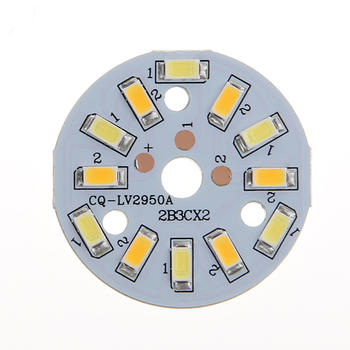Led PCB board is the abbreviation of printed circuit board. Both LED aluminum substrate and FR-4 fiberglass circuit board belong to PCB. LED aluminum substrate prints circuit on aluminum surface with good thermal conductivity, and then solders electronic components on it. The main purpose of using aluminum substrate is that it has good heat dissipation. Due to the high heating rate of high-power LED, most of the aluminum substrate is used in the production of LED lighting. FR-4 fiberglass circuit board is a traditional circuit board of electronic products. It is widely used because of its good insulation, corrosion resistance, compression resistance, multi-layer printing and other characteristics.

Led PCB technology has developed into many new product innovations. A good example is developing PCB for LED lighting. The LED is soldered to the circuit board, and the chip generates light when it is electrically connected. The heat sink and ceramic base are used to connect the chip to absorb heat and cool the process. Because of its excellent energy efficiency, low cost and maximum design flexibility, it is often used in traffic lights, car headlamps, solar lighting, flashlight and hospital operating room lighting.
If LEDs are integrated into a circuit board, it is easier to combine led membrane switches with keyboards, touch screens and other types of membrane switches. Even when creating complex backlight switch components, the built-in or embedded led PCB can provide more design freedom.
